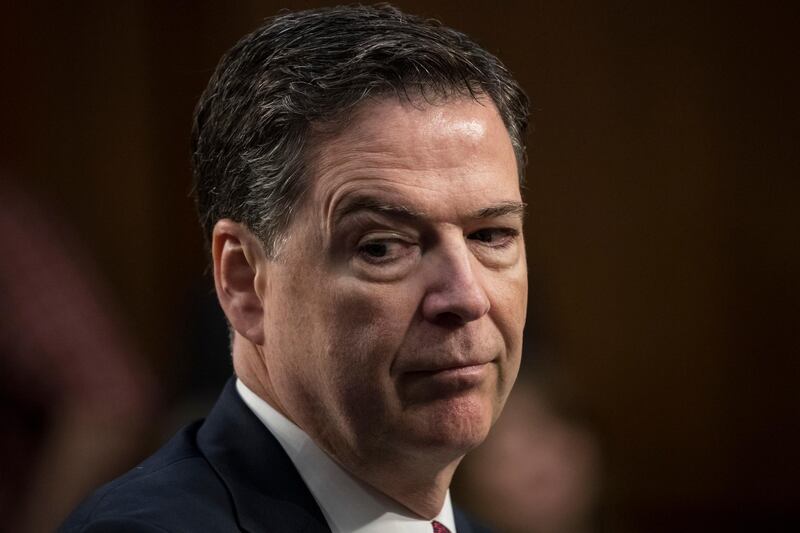In a stinging rebuke, the Justice Department watchdog declared Thursday that former FBI director James Comey was “insubordinate” in his handling of the Hillary Clinton email investigation in the explosive final months of the 2016 presidential campaign. But it also found there was no evidence that Mr Comey’s or the department’s final conclusions were motivated by political bias toward either candidate.
Donald Trump had looked to the much-anticipated report to provide a fresh line of attack against Mr Comey and the FBI as the president claims that a politically tainted bureau tried to undermine his campaign and, through the later Russia investigation, his presidency. He is likely to use the harsh assessment of Mr Comey as validation for his decision to fire him, an act now central to special counsel Robert Mueller’s investigation into whether the president sought to obstruct justice
Mrs Clinton and her supporters, on the other hand, have long complained that she was the one whose election chances were torpedoed by Mr Comey’s investigation announcements about her email practices, in the summer and then shortly before the election.
Yet the report’s nuanced findings — that the FBI repeatedly erred, though not for politically improper reasons — complicated efforts by Republicans and Democrats alike to claim total vindication.
The conclusions were contained in a 500-page report that documents in painstaking detail one of the most consequential investigations in modern FBI history and reveals how the bureau, which for decades has endeavoured to stand apart from politics, came to be entangled in the 2016 presidential election.
The report also underscores efforts by senior FBI and Justice Department leaders in the final stages of the presidential race to juggle developments in the Clinton investigation — she had used private email for some government business while secretary of state — with a separate probe into potential coordination between the Trump campaign and Russia. The Russia investigation, though diverting bureau resources and attention away from the late stages of the Clinton probe, was unknown at the time to the American public.
Mr Comey, whom the president fired shortly after taking office, bore the brunt of much criticism for a series of scrutinised decisions, though it does not second-guess the FBI’s conclusion that Mrs Clinton should not have been prosecuted — despite repeated assertions by Mr Trump and his supporters that anyone less politically connected would have been charged.
The inspector general concluded that the FBI director, who announced in July 2016 that Mrs Clinton had been “extremely careless” with classified material but would not be charged with any crime, repeatedly departed from normal Justice Department protocol.
But it also rejected the Trump talking point that the FBI favoured Mrs Clinton over him, saying “we found no evidence that the conclusions by the prosecutors were affected by bias or other improper considerations; rather, we determined that they were based on the prosecutors’ assessment of the facts, the law and past department practice.”
Still, Trump supporters quickly focused on the report’s recounting of anti-Trump text messages from two FBI officials who worked the Clinton probe and later the Russia case, including one in which an agent says, “we’ll stop it” with regard to a possible Trump victory.
The report suggests that text from Peter Strzok, who was later dropped from Mr Mueller’s team, “implies a willingness to take official action to impact the presidential candidate’s electoral prospects.” But it did not find evidence that those views seeped into the investigation.
Spokeswoman Sarah Huckabee Sanders said the report “reaffirmed the president’s suspicions about Comey’s conduct and the political bias amongst some of the members of the FBI.”
Current FBI director Chris Wray told reporters that the bureau accepted the report’s findings and was making changes, including requiring further training for FBI employees and reemphasising the importance of objectivity. In a New York Times opinion piece released after the report, Mr Comey wrote an opinion piece for The New York Times in which he said he disagreed with some conclusions but respected the watchdog’s work.






